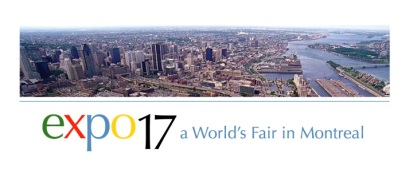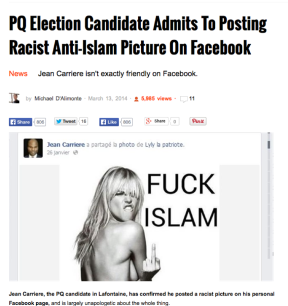QUEBEC’S FATEFUL DAY
Yesterday marked the anniversary of Quebec’s adoption of Bill 101, the Charter of the French Language that has defined Quebec for two generations and led to its steady decline.
Introduction: The Twilight of Montreal
The late 1960’s to mid-1970’s were heady days for Quebec and Canada.
- In 1967 the nation celebrated its Centennial with Expo 67 World Fair in Montreal from April 27 to October 29, 1967. From Wikipedia:
It is considered to be the most successful World’s Fair of the 20th century, with the most attendees to that date and 62 nations participating. It also set the single-day attendance record for a world’s fair, with 569,500 visitors on its third day.
- In 1969, Major League Baseball came to Canada with the Montreal Expos.
- In 1975, Montréal–Mirabel International Airport opened as the largest airport in the world in terms of the surface area ever envisioned, with a planned area of 39,660 hectares (396.6 km2). The King Fahd International Airport in Saudi Arabia, which was completed in 1999, has since surpassed its surface area.
- In 1976, Montreal hosted the Summer Olympics.
- In 1977, the Montreal World Film Festival opened.
- From 1965-1979. the Montreal Canadiens won 10 of their 11 Stanley Cup Finals appearances.
Then the magic stopped.
PQ and Loi 101
Embed from Getty ImagesIn 1976, Parti Québécois under René Lévesque won control in Quebec for the first time ever. In 1977 it pushed through Quebec’s National Assembly Bill 101, the Charter of the French Language which broke from Canada’s official bilingualism. According to the Canadian Encyclopedia: Bill 101 instead
made French the official language of government and of the courts in the province of Québec, as well as making it the normal and habitual language of the workplace, of instruction, of communications, of commerce and of business. Education in French became compulsory for immigrants, even those from other Canadian provinces, unless a “reciprocal agreement” existed between Québec and that province (the so-called Québec clause).
As Claude Belanger explains in The Language Laws of Quebec, most controversial was the fact that
the bill required that all advertising on billboards be done in French only and that all commercial signs in business establishments be in French alone. All public administrations and businesses had to address their employees in French. All government agencies were directed to use the Official language in their dealings with corporations and other governments in Canada. Government Ministries and Agencies, as well as professional associations in Quebec, were to be known by their French name. The laws of the province were to be enacted in French although an English translation might also be made (and indeed continued to be made after bill 101). English education was to be restricted mostly to those already in the system, their siblings, those temporarily posted in Quebec or whose parents had themselves received an English elementary education in the province.
101’s Impact
The Charter of the French Language was Quebec’s greatest gift to Toronto causing a major flight of English speakers to Ontario primarily. Quebec lost nearly 150,000 English speakers in the first 10 years.
This began to subside in the 1980s but accelerated as PQ nearly won a secession referendum in 1995 losing — 50.6% to 49.4%.
Of the anglophones between 25 and 44 years old who left Quebec between 1981 and 1986, more than half, a total of 15,000 individuals, had university degrees. Quebec anglophones have also tended to take their jobs with them when they leave. Think of all the high-paying jobs Toronto has gained in the past 20 years with the transfer of Montreal-based companies like Northern Telecom, Sun Life Assurance, the Royal Bank of Canada and the Bank of Montreal. (Both banks continue to have their legal headquarters in Montreal but most of their head-office functions are handled out of Toronto, leaving only a hollow shell.)
Quebec unemployment quickly jumped from 8.7 percent in 1976 to 10.4 percent in 1977 and would stay above 10 percent for 19 of the last 23 years of the century. In contrast, there were only 3 years in which unemployment exceeded 10 percent in Ontario during this period.
It’s not getting any better:
- A recent internal report by the federal immigration department suggests more than six out of 10 of the coveted business-class immigrants who declared Quebec as their destination during the early 2000s quickly fled to other provinces, taking their investment dollars and entrepreneurship potential with them.
- A poll in early 2014 found that half of the English speakers who remain are thinking of leaving.
Horror stories over enforcement of Law 101 are everywhere. One woman who worked as a clerk in the claims section at Chubb and Sons, a national insurance company. In 1977, the “language police” entered her Montreal office.
I was told that I had to be tested. If I didn’t pass, I had to take language lessons. If I failed to pass the French course, I’d lose my job. If I passed the first course, I’d be assigned another until my French was considered almost perfectly fluent”. Precisely the same imposition was made on her husband Rick, who worked for a Montreal-area plumbing company.
While it is hard to top the story of the pet store owner being threatened with a fine over the fact that his parrot spoke English, recent enforcement actions have come close. As the blog CanadaAlive reports:
In recent years the Language Police have made international headlines and have again made Quebec the laughing-stock of North America, this time with the “Pastagate” and “Facelivre” scandals. In 2012 the Language Police directed their attentions to Italian restaurants, and began to issue fines, search and seizure warrants and even revoked the business licenses of Italian restaurants that displayed such non-French words on their menus as “pasta” and “Spaghetti” and even “vino”. In early 2014 the Language Police went after Quebec small business owners who posted in English on facebook, fining and closing down several small boutique retailers. The OLF has recently issued an order to supergiant Walmart to change their name to something more palatable to the French. Walmart is, however, fighting this order in court and will appeal it to the Supreme Court if necessary.
An Elite City’s Decline
Embed from Getty ImagesNowhere was the impact more evident than in Montreal which had been Canada’s premier city. After experiencing growth rates of 43.9 percent and 23.8 percent in the 1950’s and 1960’s, it grew by only 3 percent in the 1970s and then approximately ten percent in the 1980’s and 1990’s, while Toronto grew by 14.1%, 29.8% and 20.3% the last three decades of the century. In doing so, Toronto not only surpassed but leaped far ahead of its French counterpart.
Embed from Getty ImagesMontréal–Mirabel International Airport tells the tale of Montreal’s decline. When the airport opened, officials at the time predicted 60 million passengers would pass through the glass, steel and concrete structure annually by 2010, but yearly passenger traffic never surpassed three million and it ceased operations in 2004.
As explained by Wikipedia, the airport was :
Montréal–Mirabel International Airport opened for business on October 4, 1975, in time for the 1976 Summer Olympics. In the rush to get the airport open in time for the Olympics, it was decided to transfer flights to Mirabel in two stages. International flights would be transferred immediately, while domestic and US flights would continue to be served by Dorval airport until 1982.
The federal government predicted that Dorval would be completely saturated by 1985 as part of its justification for building Mirabel. They also projected that 20 million passengers would be passing through Montreal’s airports annually, with 17 million of those through Mirabel. However, by 1991 Mirabel and Dorval were only handling a total of 8 million passengers and 112,000 tons of cargo annually, while Toronto was handling 18.5 million passengers and 312,000 tons of cargo. Mirabel alone never managed to exceed 3 million passengers per year in its existence as a passenger airport.
. . . Many international airlines, faced with the stark economic reality of operating two Canadian points of entry, opted to overfly Montreal by landing instead in Toronto with its better domestic and US connections. The simultaneous operating of both Montréal airports resulted in Dorval being overtaken in traffic first by Toronto, then Vancouver International and finally relegated to fourth by Calgary International Airport, as international airlines were slow to return to Dorval after it resumed handling international flights in 1997. Over time the decreasing passenger flights began to take a toll on businesses within Mirabel, particularly notable was the 354 room Chateau Aeroport-Mirabel hotel adjacent to the terminal, which was forced to shut down in 2002 after 25 years of operation.
Instead, the vacant terminal was primarily used as a film location but even that will be demolished in 2014.
Embed from Getty ImagesA further insult came in 1995 when the NBA moved into Canada picking Toronto and Vancouver over Montreal and then Major League Baseball moved the Expos to Washington at the end of the 2004 season.
Epilogue
No Expo Sequel
Expo 67 is often referred to as “the last good year” before Quebec Sovereignism and ensuing economic decline dampened Montreal’s future. To celebrate its 50th anniversary and Canada’s Sesquicentennial in 2017 a new group, Expo 17, was looking to bring a smaller-scale — officially sanctioned — exposition back to Montreal. Expo 17 hoped a new world’s fair would regenerate the spirit of Canada’s landmark centennial project but could not win city support for the project.
Montreal is another city altogether today.
PQ’s Fall From Grace
In 2012, Pauline Marois led Parti Quebecois back to power with 31.95% of the vote which enabled her to form a minority government. Marois pushed for Quebec’s Charter of Values
which would ban wearing religious symbols (e.g., Muslim veils) by public employees or entities receiving public funding. The proposal showed some of the extreme elements of the PQ with one PQ candidate being forced to step down after posting anti-Muslim posters on his Facebook wall (left).
Hoping to win a majority that could pass the Charter of Values, Marois called elections in 2014. PQ paid a huge price at the polls with Marois becoming the first Quebec premier not to be reelected in nearly a century, while the 25.38% vote was the worst result for PQ since 1970.


Pingback: 2014: Year in Review | BGK Blog